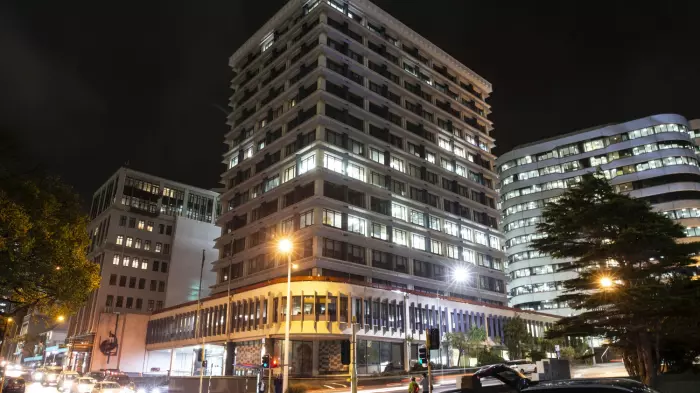Annual Shareholders Meeting 2022 -Chief Executive’s Address
MEETING
Thu, May 26 2022 09:54 am
Thank you Jose. And good morning everyone.
As Jose has said, in our second year of COVID we produced a solid trading outcome. I shall provide a little more detail on the results by division.
I will also highlight some of our ESG reporting and initiatives.
The New Zealand business saw another challenging year of COVID. The entire business was closed for two weeks in August 2021 as part of the COVID-19 lockdown, with the Auckland region remaining locked down for an additional three weeks. This resulted in an estimated $26 million in lost sales. However, upon re-opening the business recovered well, with same store sales for the full year up +9.1%.
Total store sales in New Zealand were $461.1 million, up $50.7 million or +12.4% on the prior year.
The underlying sales growth has been driven by another good performance by both KFC and Carl’s Jr. through both the delivery and in-store channels. The new KFC on-line “click and collect” channel and the launch of the new KFC e-commerce website were major contributors to the strong result.
Taco Bell remains a small but growing portion of the New Zealand business with six stores opened during the year and sales from the four existing stores continuing to track to expectations.
EBITDA was up $7.4 million to $83.3 million, reflecting the higher sales. However the underlying EBITDA as a percentage of sales reduced to 18.1% from 18.6% as a result of Taco Bell openings and on-going cost pressures.
As part of the government COVID-19 response, the New Zealand business received a wage subsidy of $7.2 million which was fully passed on to all staff who were retained at 100% of their wages and salaries throughout the lockdown periods.
The Pizza Hut sub-franchising process continued, with seven stores sold to franchisees during the year. This included two turnkey stores. Restaurant Brands has now consolidated on six company-owned stores with independent franchisees operating 99 stores.
Overall, Restaurant Brands’ New Zealand store numbers remained constant during the year at 137. Seven Pizza Hut stores were sold, offset by three new KFC store openings and the continued roll out of Taco Bell, with six new stores opened across New Zealand. Two poorly performing Carl’s Jr. stores were closed.
The Australian business was also hit hard by COVID, particularly in CBD and mall locations.
Total sales in Australia were $A230.0 million, up $A27.6 million (or +13.6%) on last year, primarily due to additional store openings and the acquisition of five stores in Sydney in February 2021.
Continued disruption to the business due to COVID-19 included the temporary closure of all mall stores and Sydney CBD in-line stores. This, together with the extended closure of all dine-in facilities in our restaurants had a continued adverse effect on the Australian results.
In February 2021, the company acquired five KFC stores in Northern Sydney that have subsequently traded above expectations. There has also been continued investment in KFC store upgrades with eight store refurbishments completed during the year. Four new drive-thru Taco Bell sites also opened bringing total store numbers to 79, nine up on 2020.
The closure of the dine-in facilities due to COVID-19 resulted in the home delivery service continuing to grow in popularity. This has helped to maintain same store sales growth over the past 12 months at +1.4%.
Store EBITDA of $A29.8 million (13.0% of sales) (excluding the effect of NZ IFRS 16) was up $A2.1 million or +7.6% on last year. The increase was assisted by the 10 months trading from the five stores acquired in February 2021. However continued cost pressures, along with the ongoing COVID-19 disruptions, have resulted in a drop in the % EBITDA margin from 13.7% to 13.0%.
Despite a significant spread of COVID in Hawaii, our two brands there traded particularly well, with significant volumes through our delivery channels.
Total sales in Hawaii for the period were $US146.3 million, up $US7.0 million primarily due to a strong recovery by Taco Bell. Same store sales growth was 9.1% for the year, up on the 7.7% same store sales growth in the prior year.
Taco Bell’s strong recovery in 2021 was due to increased use of delivery channels.
The Pizza Hut online ordering system also grew, with over 60% of orders now performed on line. Touchless deliveries coupled with the continued growth of the delivery channels and the impact of new and refurbished stores has resulted in another strong year for the Pizza Hut brand.
Store level EBITDA in Hawaii was $US24.4 million (up $US2.9 million), reaching 16.4% as a percentage of sales vs 15.6% in the prior period.
Store numbers are up by one from December 2020 with one new Taco Bell and one new Pizza Hut store being opened during the year, offset by the closure of one Taco Bell. The new stores opened during the year are performing well.
In its first full year of trading, the California business exceeded expectations with total sales of $US110.3 million, and store level EBITDA of $US16.8 million (15.2% of sales). The reduction in % EBITDA margin verses 2020 was the result of supply chain shortages and cost pressures which have continued into 2022.
The strong sales for the year were driven in part by two rounds of Government stimulus payments (the first in January and a larger second payment in March 2021). Both rounds of payments saw significant increases in consumer spending.
As seen across all our divisions, delivery channels continue to be key to business success. In California, the new KFC.com platform and mobile app were launched in the second half of the year with strong uptake.
Two new stores were acquired during the year (one in July and a second store in November). After some refurbishment, both stores are up and running well.
In line with our strategy, more capital expenditure is planned for this market, including new store builds, of which three have opened in the first quarter of 2022. Total store numbers are 70, up from 69 at the end of 2020.
General and administration (G&A) costs were $50.0 million, up $4.4 million from last year due to the inclusion of a full year of California G&A costs. G&A as a % of total revenue was 4.5%, slightly higher than our targeted 4.0% largely due to the effect of the closure of the New Zealand stores.
Financing costs of $36.3 million were up $6.1 million on prior year. Interest on bank debt was $6.8 million, up $0.4 million on last year due the additional debt taken on to acquire the California business in September 2020. This was partially offset by a lower effective interest rates following the restructure of the Group’s debt facilities which was activated in May 2020.
You will notice the increased emphasis in our shareholder reporting on the non-financial performance of the business. This year’s annual report contains twenty pages of ESG (Environment, Social and Governance) reporting, compared with six pages last year.
Restaurant Brands desires to be a good corporate citizen and is very much aware of its footprint on society in all the markets it operates in. We are comfortable being held accountable for our performance in this area.
Whilst it is still early on in our ESG journey, we are proud of some of our improved performance to date in such areas as:
• Energy usage – significant reductions in electricity used per $ million of sales;
• Gender balance – two of our four divisions now with >40% female representation in their senior management teams;
• Increased levels of donations to community causes.
Whilst some of our staff-related measures did slip back in 2021, largely because of COVID, with both staff turnover and accident rates requiring more attention. These performance indicators remain very much “top of mind” throughout the organisation.
We will continue to refine our ESG reporting, both within prescribed legislative guidelines and voluntary disclosures We will continue to provide assurance to our shareholders that Restaurant Brands very much maintains a “balanced scorecard” approach to its measures of business performance.
As the Chairman has observed, the COVID-19 pandemic continues to place considerable stress on our staff at all levels and in all locations where our company operates.
I remain sincerely grateful, both to my senior management team and to our more than 11,000 staff throughout our store networks in New Zealand, Australia, Hawaii and California for the focus and enthusiasm they have brought to the task of serving our customers under often trying circumstances.
We have throughout this presentation emphasised the continuing impact of COVID on our business.
We have effectively managed our way through the crisis for the past two years and developed an understanding of how COVID affects us and how we can best respond.
The new year has started satisfactorily with Q1 sales up 6.0% and three of our four divisions recording same store sales growth. However we continue to see further outbreaks of COVID with consequent constraints on the business.
We are also seeing considerable cost pressures as the world moves into a more inflationary environment and whilst we are comfortable in being able to recover cost increases in the medium-long term, there will be some short term margin disruption.
We remain focussed on our long-term growth strategies in order to build the business, despite these short term interruptions and are confident of our ability to produce long term profit growth.
However in these uncertain times we are not committing to a profit outcome in the current year.
Thank you. I’ll now hand you back to Jose.




